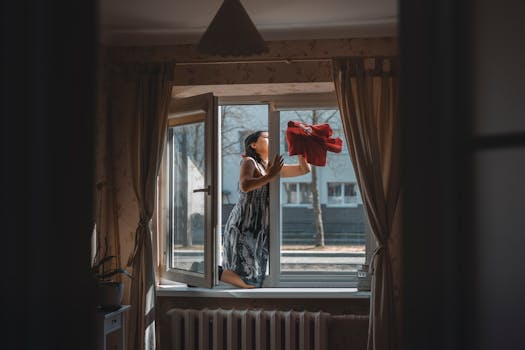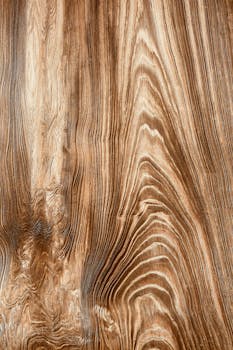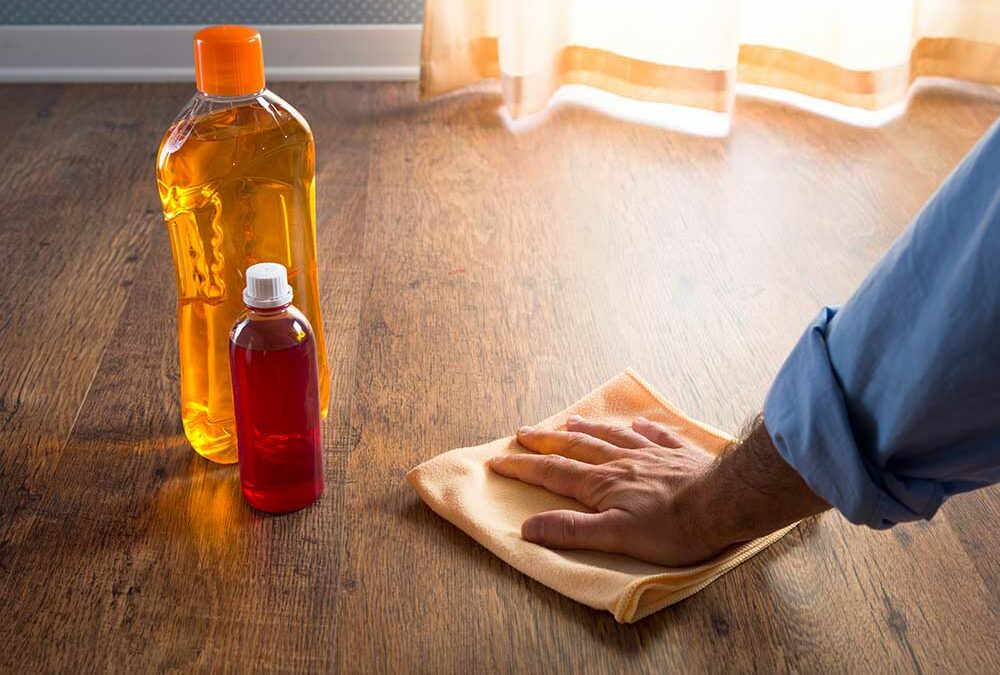Introduction
A sparkling hardwood floor is a symbol of elegance and warmth in any home. It’s a reflection of the homeowner’s taste and a testament to the beauty of natural materials. However, maintaining the luster and shine of your hardwood floors can often seem like a daunting task, especially in a busy household. This is where the humble vinegar comes in! Vinegar, a common household item, is often hailed as a miracle cleaning agent. But is it the best way to clean wood floors? In this guide, we’ll delve into the art of cleaning wood floors with vinegar, providing you with expert advice and practical tips. Whether you’re a minimalist, a modern maximalist, an antique and vintage lover, a conversationist or a multifunctionalist, this guide will help you keep your hardwood floors in top-notch condition, enhancing the aesthetics of your home and adding value to your property. Let’s dive in and master the art of cleaning wood floors with vinegar!
Understanding Your Hardwood Floors
Before you embark on your hardwood floor cleaning journey, it’s crucial to familiarize yourself with your flooring. Understanding the type of finish on your hardwood floors, the importance of regular maintenance, and the role of preventive measures in protecting your hardwood floors are all key aspects of maintaining the appeal and longevity of your San Diego home’s flooring.
Identifying the Type of Finish on Your Hardwood Floors
Knowing the type of finish on your hardwood floors is the first step in determining the best cleaning method. Whether your floor is waxed, unfinished, or has a polyurethane, urethane, or polyacrylic coating, different finishes require different care. For instance, cleaning waxed or unfinished wood with vinegar can cause discoloration, so it’s important to identify your floor’s finish before using vinegar as a cleaning agent. If you’re unsure, consult with a professional, such as a skilled wooden flooring installer at California Flooring and Design, to avoid damaging your floor.
The Importance of Regular Maintenance for Hardwood Floors
Regular maintenance is a crucial aspect of hardwood floor care. Dust and debris can act like sandpaper, scratching and damaging the surface of your wooden floor over time. Thus, daily dusting and weekly vacuuming are recommended to keep your floors in top-notch condition. For a more thorough clean, use a hardwood floor cleaning solution once a month. Remember to clean high-traffic areas twice per month with a damp mop to keep your floor looking fresh and clean.
The Role of Preventive Measures in Protecting Hardwood Floors
Preventive measures play an essential role in protecting your hardwood floors. Place floor mats both outside and inside exterior doors to lessen tracked-in dirt. In snowy or rainy weather, set up a boot removal area to avoid damaging floors with water and deicing agents. Also, consider using floor protectors under furniture and adding area rugs in play areas to ensure children’s toys don’t scratch the floor.
These preventive measures, along with regular maintenance and understanding your hardwood floor’s finish, set the stage for successful cleaning practices. With these foundational steps, you’re now ready to tackle the next phase: exploring the controversy surrounding vinegar as a cleaning agent for hardwood floors.
The Controversy Surrounding Vinegar as a Cleaning Agent for Hardwood Floors
The mention of vinegar as a hardwood floor cleaner often elicits mixed responses. Its use has sparked debates among homeowners and cleaning experts. This controversy stems from the unique properties of vinegar and hardwood floors.
The Acidic Nature of Vinegar and Its Impact on Hardwood Floors
Vinegar, a potent cleaning agent, derives its cleaning strength from its high acetic acid content. This acidic nature gives vinegar its antimicrobial properties, making it highly effective at eliminating bacteria and germs. However, the acidic nature of vinegar can raise eyebrows when it comes to hardwood floors.
Hardwood floors require a pH-neutral or close-to-neutral cleaner. Naturally, this implies that vinegar, being acidic, might not be suitable for hardwood floors. But that’s not entirely accurate. When vinegar is mixed with water, its acidity is significantly reduced, transforming it into an effective cleaning solution that cuts through dirt and grime, leaving your floors streak-free and naturally clean.
However, it’s essential to remember that vinegar should only be used on sealed hardwood floors or pre-fabricated hardwood floors. If your floors are waxed or unfinished, vinegar can potentially cause damage. Therefore, it’s always advised to test the vinegar solution in an inconspicuous spot before applying it to the entire floor.
The Pros and Cons of Using Vinegar for Cleaning Hardwood Floors
Using vinegar to clean hardwood floors comes with its set of advantages and drawbacks. On the upside, vinegar is a safe, affordable, and effective cleaning solution. It’s especially handy at breaking down grime and dirt that dulls your hardwood floors over time. More importantly, it’s a natural cleaner, reducing your exposure to harsh chemicals.
On the downside, overuse of vinegar or using it undiluted can indeed damage your hardwood floors. Vinegar is an acid and, if not appropriately diluted, can break down the finish on the surface of your floor. Over time, it can reduce the shine and leave a dull appearance. Also, an excessive amount of water on the floor, which can result from using vinegar and water to clean floors, can cause swelling and discoloration.
In conclusion, understanding the properties of vinegar and using it correctly are crucial when it comes to safely cleaning hardwood floors with vinegar. The controversy surrounding vinegar as a cleaning agent for hardwood floors is not unfounded. But with the right knowledge, you can harness the cleaning power of vinegar, keeping your hardwood floors shining like new.

Safe Methods of Cleaning Hardwood Floors with Vinegar
To master the art of cleaning hardwood floors with vinegar, it’s critical to understand the safe and effective methods that can be employed. This section will explore three reliable practices that can ensure a sparkling finish without causing damage to your hardwood floor.
Cleaning by Hand with a Bucket and Cloth
This method, though considered old-fashioned, is the perfect choice when you want to provide a thorough cleaning to your hardwood floors. It involves mixing half a cup of white vinegar with a gallon of warm water. Adding 2-3 drops of your favorite essential oils like lemon or clove to the solution can leave your floors smelling fresh. Soak a cloth in this mixture, wring it out, and wipe down your floors, ensuring you don’t leave any standing water. This method gives you the chance to get up close and personal with your floors, addressing those hard-to-reach corners and stubborn grime effectively.
Using a Refillable Spray Mop
For those who prefer a quick and convenient cleaning method, a refillable spray mop comes in handy. This method involves creating a solution with 3 teaspoons of white vinegar, 16 ounces of warm water, and 1-2 drops of essential oils. The solution is then poured into the spray mop’s refillable bottle. As you mop, the solution is sprayed directly onto the floor, and the microfiber pad of the mop picks up the dirt and grime. It’s crucial to rinse the pad frequently to prevent streaking.
Using a Spray Bottle and Microfiber Mop
This method is similar to using a refillable spray mop but incorporates a separate spray bottle and microfiber mop. The cleaning solution used is the same as that for the refillable spray mop. However, in this method, instead of spraying the solution directly onto the floor with the mop, you spray the solution from the bottle and then mop it up. This method gives you more control over the amount of cleaning solution applied to the floor.
Remember, regardless of the method you choose, always test the vinegar solution in an inconspicuous spot first. Also, never let standing water sit on your hardwood floors as it can warp and ruin the wood. With these safe methods of cleaning hardwood floors with vinegar, you can maintain the shine and extend the lifespan of your flooring, keeping them looking as good as new for years to come.
How to Properly Use Vinegar for Cleaning Hardwood Floors
Now that we’ve demystified the art of cleaning hardwood floors with vinegar, it’s time to dive into the specifics. After all, precision is key when it comes to maintaining the beauty and longevity of your treasured hardwood floors.
The Correct Vinegar to Water Ratio for Cleaning Hardwood Floors
While vinegar is a powerful cleaning agent, its strength needs to be tamed when used on hardwood floors. The golden rule here is to balance the acidity of vinegar with water. The recommended ratio is ½ cup of vinegar to one gallon of warm water. This diluted solution ensures that the vinegar’s acidity is significantly reduced, making it a safe and effective cleaner for your hardwood floors.
The Importance of Testing the Vinegar Solution in an Inconspicuous Spot
Before you get started, it’s crucial to test the vinegar solution in a hidden area of your floor. This could be under a piece of furniture or in a corner. Apply a small amount of the vinegar solution and let it sit for a few minutes. If there’s no discoloration or damage, you’re good to go. This important step helps ensure that the vinegar solution is compatible with your specific hardwood floors and prevents potential damage to a visible area of the floor.
Tips to Avoid Damaging Your Hardwood Floors When Using Vinegar
When it comes to cleaning hardwood floors with vinegar, a little caution goes a long way. Here are a few expert tips to keep in mind:
- Avoid overuse: While vinegar can be a great cleaning agent, overuse can damage your hardwood floors. Remember, less is more!
- Use a soft mop or cloth: Hard bristles or rough cloths can scratch the surface of your hardwood floors. Always use a soft mop or cloth to gently clean your floors.
- Wring out excess water: Excessive water can warp and ruin hardwood floors. It’s very important to wring out your mop to ensure it’s damp, not soaking wet.
- Work in sections: To prevent water from sitting on your floors for too long, clean your hardwood floors in sections. This allows you to quickly dry each area before moving on to the next.
- Dry floors promptly: After mopping, dry your floors promptly with a clean, dry towel. This ensures that no water is left sitting on the surface, which can cause damage over time.
By mastering these tips and techniques, you’ll be well on your way to maintaining the elegance and longevity of your hardwood floors with the power of vinegar.

Addressing Common Concerns and Questions About Cleaning Hardwood Floors with Vinegar
When it comes to cleaning hardwood floors with vinegar, it’s natural to have some questions and concerns. After all, you want to ensure that you’re caring for your floors in the best possible way. In this section, we’ll address some of the most common questions that homeowners have about using vinegar as a cleaning agent for hardwood floors.
Can Vinegar and Dawn Be Used to Clean Hardwood Floors?
It’s not uncommon for homeowners to wonder if they can mix vinegar with Dawn dish soap to clean their hardwood floors. While vinegar and Dawn can be an effective cleaning solution for many surfaces, it’s not recommended for hardwood flooring. The soap can leave a residue on the floor’s surface, which can dull the shine over time. Moreover, a combination of vinegar and Dawn could lead to an excessive amount of suds, making the cleaning process more difficult and possibly leaving a slippery residue that could be a safety hazard. Stick to using a properly diluted vinegar solution for the best results.
How Much White Vinegar Do I Use to Clean Wood Floors?
When it comes to the right amount of vinegar to use for cleaning wood floors, less is more. You want to ensure that you’re using enough vinegar to effectively clean the floors, but not so much that it could potentially damage the finish. The ideal ratio is ½ cup of distilled white vinegar per gallon of warm water. This mixture is sufficient to cleanse and deodorize your floors without posing a risk to the finish.
Is It OK to Clean Wood with Vinegar and Water?
Yes, it’s perfectly fine to clean wood with vinegar and water, provided you follow the best practices. Vinegar is a potent cleaning agent that can cut through dirt and grime effectively. However, it’s important to dilute the vinegar with water to protect the finish of your hardwood floor. Also, remember to wring your mop out as much as possible to prevent water damage. Testing the vinegar solution in an inconspicuous spot before applying it to the entire floor can also help ensure it’s safe for your specific floor finish.
Cleaning your hardwood floors with vinegar doesn’t have to be a daunting task. With a little knowledge and care, you can effectively clean your floors, leaving them shining and fresh.

Alternative Cleaning Methods and Products for Hardwood Floors
When you’re in the market for a sparkling clean but want to give vinegar a break, there are a plethora of alternative cleaning methods and products that can yield excellent results on your hardwood floors. Let’s explore some of the go-to commercial products and natural cleaners that can effectively maintain the beauty of your hardwood flooring.
Commercial Products Safe for Hardwood Floors
While vinegar is a cost-effective and natural cleaning solution, there are numerous commercial cleaners designed specifically for hardwood floors. These products are formulated with the right balance of ingredients to ensure they clean without damaging your hardwood floors.
If you’re unsure about the best hardwood floor cleaning products, it’s advisable to talk to your flooring manufacturer as they can often recommend a specific cleaner to use for their product. When picking a product, always opt for one specifically made for cleaning hardwood floors and avoid cleaners that contain harsh chemicals like bleach and ammonia, which can potentially damage your hardwood flooring.
For those concerned about harsh chemicals, look for hardwood floor cleaners that are Greenguard Gold certified, indicating they’re safe to use in homes with kids and pets.
Natural Cleaners and Their Effectiveness on Hardwood Floors
Apart from vinegar, there are other natural cleaning agents that can be used effectively on hardwood floors. Baking soda, for instance, is a potent cleaner and it’s safe for hardwood. It’s an alkaline that can neutralize acidic stains and cut through dirt and grime. To use baking soda on your hardwood flooring, mix a quarter cup of baking soda with a gallon of warm water, then mop your hardwood in the direction of the grain.
Steam cleaning is another method you can use to clean your hardwood floors. It is both safe and effective. Steam cleaners use hot water and steam to lift dirt and grime from the surface of your floors without using harsh chemicals. However, ensure you use a steam cleaner designed specifically for hardwood to avoid potential heat damage.
Remember, before using any natural cleaners, always carry out a spot test to ensure that the cleaner will not damage your hardwood floors. Baking soda and lemon, for example, can potentially damage hardwood flooring.
In conclusion, regardless of the cleaning method or product you choose, always remember the golden rule of hardwood floor cleaning: less water is more. Too much water can seep into the wood and cause unsightly spots or warping. Regular cleaning with the proper tools and cleaners will keep your hardwood floors looking their best for years to come.
Conclusion
Recap of the Best Practices for Cleaning Hardwood Floors with Vinegar
As we’ve navigated through the art of cleaning wood floors with vinegar, we’ve distilled some best practices that are worth revisiting. First, when using vinegar, always remember to dilute it with warm water. The suggested ratio is half a cup of white vinegar to a gallon of warm water, or three teaspoons of white vinegar to 16 ounces of warm water for smaller quantities.
Next, remember to add a few drops of essential oils to your vinegar cleaning solution for added aroma, with lemon or clove being excellent choices. Furthermore, always remember to test your vinegar solution in an inconspicuous spot, ensuring it will not discolor or damage your hardwood floors.
Also, it is essential to remember to never let standing water sit on your hardwood floors, as it can lead to warping and ruin the wood. Cleaning by hand, using a refillable spray mop, or a spray bottle and microfiber mop has been identified as the safest methods to clean your hardwood floors with vinegar.
Final Thoughts on the Use of Vinegar as a Cleaning Agent for Hardwood Floors
In conclusion, cleaning your hardwood floors with vinegar can be a highly effective and safe method when done correctly. The acidic nature of vinegar, when appropriately diluted with warm water, can cut through dirt and grime, leaving your hardwood floors looking clean and shiny.
However, it’s essential to remember that not all hardwood floors are the same. Always ensure that your floors are sealed or pre-fabricated hardwood floors and not waxed or unfinished hardwoods, as the latter could be damaged by vinegar treatment.
Finally, remember that cleaning your hardwood floors with vinegar is just one part of the equation. Regular maintenance, the use of floor protectors, and preventive measures are all crucial in preserving the beauty and longevity of your hardwood floors.
By following these guidelines, you can ensure that your hardwood floors will continue to add warmth and elegance to your San Diego home for many years to come.



